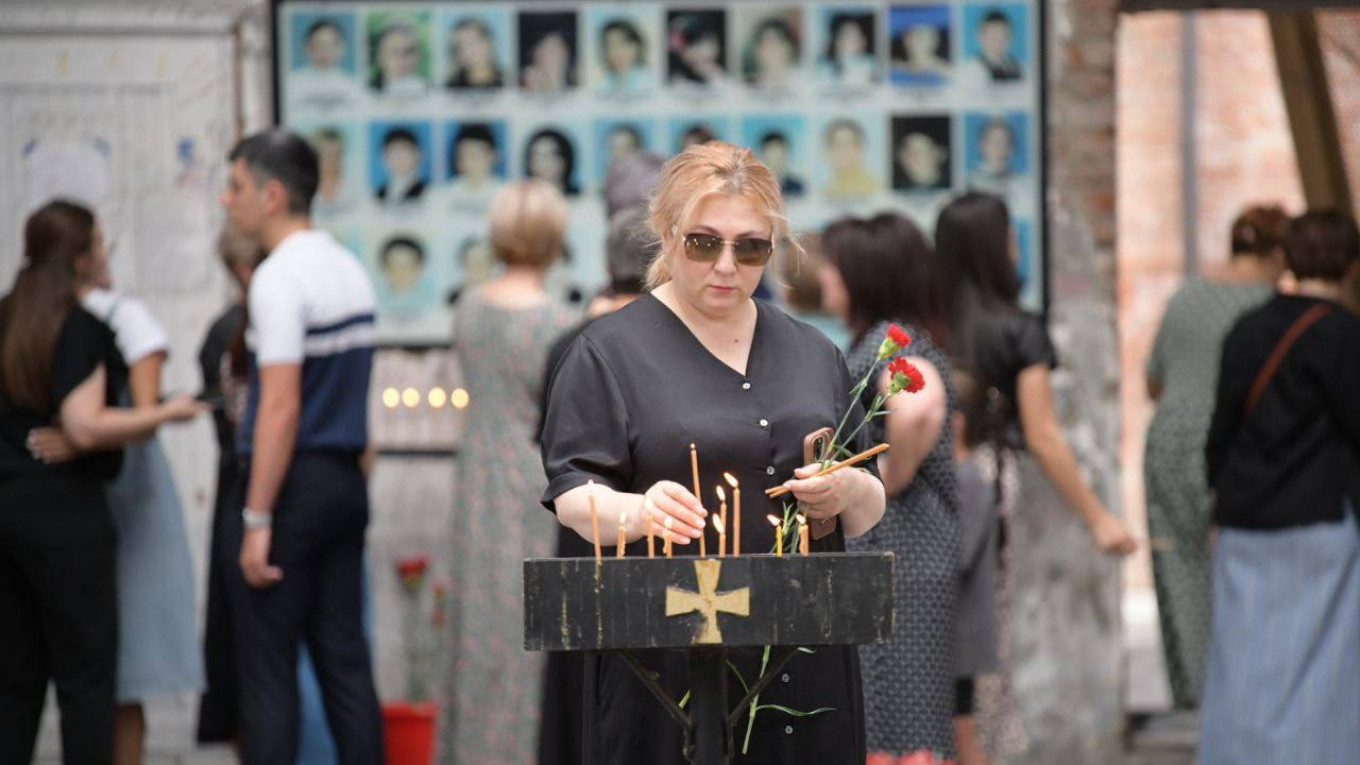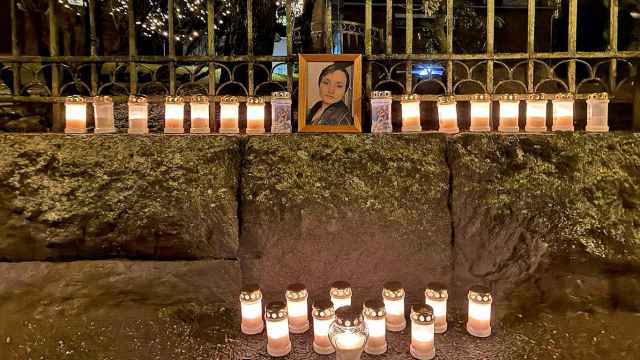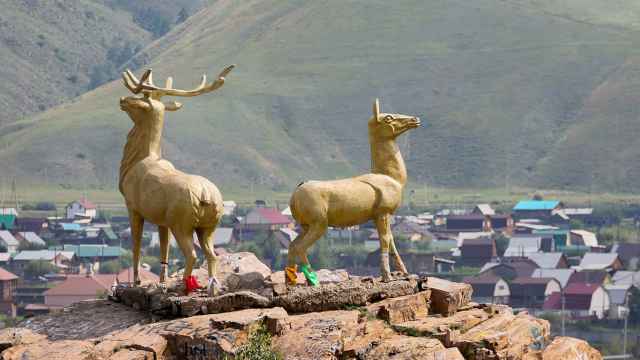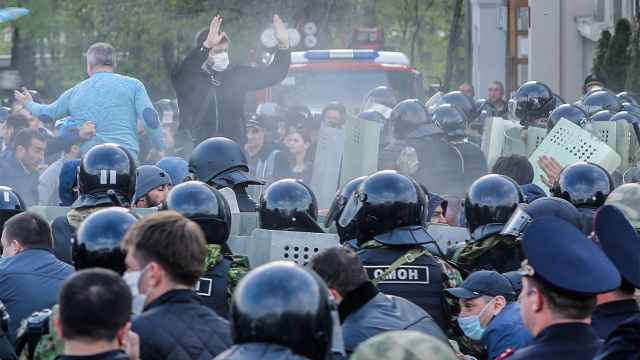Hello and welcome to Regions Calling by The Moscow Times, your guide to developments beyond the Russian capital.
In this issue, we unpack the confrontation between residents of the North Caucasus republics of Ingushetia and North Ossetia-Alania that unfolded on a highway at their shared border late last month.
The two republics fought a brief war in 1992 for control over the Prigorodny district of North Ossetia — a territory alienated from Ingush after the 1944 Soviet deportation — that resulted in North Ossetia retaining control over the district and expelling up to 60,000 ethnic Ingush from its territory.
More than three decades later, the wound of 1992 is far from healed for either Ingush or Ossetians. So is the recent incident at the border an omen of instability to come?
Before we dive into this question, let’s look at what else has been going on in Russia’s regions:
The Headlines
Motorists in the Russian Far East as well as annexed Crimea are reporting long lines and supply issues at local gas stations as gasoline prices continue to rise nationwide.
Last week, authorities in the Sakhalin region’s Kurilsky district, which incorporates the Kuril Islands, introduced a temporary ban on sales of benchmark A-92 fuel due to supply shortages. You can read more about the underlying causes of Russia’s fuel crisis — and whether the country is prepared to weather it — in this op-ed by independent energy analyst Sergei Vakulenko.
At least 10 tons of fuel oil spilled into the Black Sea during a loading operation near the port city of Novorossiysk in the Krasnodar region on Friday.
Volunteers of a bird rehabilitation center in the nearby coastal resort of Anapa on Sunday said they took in 18 birds contaminated with mazut, linking the birds’ state to the latest spill. A satellite image study by Greenpeace confirmed that the 50 square-meter-large spill has almost reached the shores of Crimea, Novaya Gazeta reported Wednesday. Meanwhile, volunteers in Anapa are still grappling with the consequences of the December 2024 Kerch Strait fuel oil spill.
Also in the Krasnodar region, emergency services battled a forest fire after a Ukrainian drone crashed in a wooded area near the resort town of Gelendzhik. The fire, which started early on Aug. 28, spread across more than 42 hectares (104 acres) within 24 hours. Initial reports said one of the blaze spots was located near the mansion widely known as “Putin’s Palace,” though the fire at that location was extinguished the same day.
Russian authorities added prominent Altaian activist Aruna Arna to the federal register of “terrorists and extremists.” Arna is one of the leaders of a widespread movement opposing a Kremlin-backed local governance reform and the expansion of Moscow-owned businesses in the republic of Altai.
Meanwhile in Vladivostok, the Federal Security Service (FSB) unveiled a monument to Felix Dzerzhinsky, the first Soviet secret police chief credited with architecting the Red Terror.
The Spotlight
In Russia’s Caucasus, a ‘Domestic Dispute’ Reminds of a Fragile Status Quo
Late in the evening on Aug. 24, a fight broke out between two groups of men near Chermen, a village that stands at the modern-day border between the republics of North Ossetia-Alania and Ingushetia in Russia’s Caucasus.
The fight, divided along ethnic lines between the Ingush and Ossetians, quickly grew in size. Dozens of people joined the brawl on each side, with their cars blocking the major Caucasus highway at the juncture of the two republics, according to local media reports and videos from the scene.
Russian police and National Guard officers sent to the scene eventually broke up the fight.
“The recent brawl is certainly the largest flare-up of tensions at the border in some time, but regional and federal authorities are heavily incentivized to assuage tensions quickly,” said North Caucasus analyst Harold Chambers.
“Crackdown on civil society [by authorities in Ingushetia] eroded the positions of some of the leaders who would typically help mediate such scenarios. There are additional tensions in both republics not related to interethnic conflict, so the Kremlin wants even more to avoid a flare-up at this time,” Chambers told The Moscow Times.
Founded by the Ingush in 1844 under the name Bazorkino, Chermen is located in North Ossetia’s Prigorodny district, one of the territories alienated from the Ingush following the forced deportation orchestrated under Soviet dictator Josef Stalin.
In 1944, between 450,000 and 650,000 residents of the Checheno-Ingush Autonomous Soviet Socialist Republic were loaded onto cattle cars and deported to Central Asia during the Soviets’ Operation Chechevitsa (Lentil).
Nearly one-third of the Chechen and Ingush populations died in the deportation.
The Chechen-Ingush ASSR was disbanded and its territory redistributed to neighboring regions and republics, including the present-day republics of Dagestan and North Ossetia.
Though the Chechens and Ingush were allowed to return to their homeland 13 years later, their republic was never restored in its entirety. The Prigorodny district remained a part of North Ossetia.
In 1992, the two republics fought a brief war for control over the area that resulted in the death of 192 Ossetians and 409 Ingush, as well as the expulsion of up to 60,000 ethnic Ingush from North Ossetia.
Once an important center of Ingush political life, Chermen plays a special role in the present-day dispute, hosting a border checkpoint where travelers crossing the border of the two republics must be inspected by a Moscow-controlled police unit.
North Ossetian officials say the checkpoint, which was taken over by federal authorities during the 1992 war, must remain in place as a vital part of counter-terrorism measures.
But most Ingush advocate for dismantling the border post that reinforces the line of separation from their historic lands, where many ethnic Ingush still live to this day.
Commenting on the most recent incident at the border, North Ossetia’s head Sergei Menyailo dubbed it “a domestic dispute” that was “exploited by provocateurs on social media.”
Menyailo also suggested restricting entry to the republic in case of similar incidents in the future — a proposition that infuriated many in Ingushetia.
“Regional authorities tend to downplay situations like this by describing them as ‘domestic disputes,” said Isabella Evloeva, an independent journalist from Ingushetia.
“This is understandable: their task is to prevent escalation, avoid mobilization along ethnic lines, and not to give the conflict an interethnic feel that could complicate the already fragile balance in Ossetian-Ingush relations,” Evloeva told The Moscow Times.
Yet shortly after the incident, former Justice Minister Yury Chaika, who now serves as Vladimir Putin’s special envoy in the North Caucasus, paid a sudden visit to Ingushetia.
Evloeva believes Chaika’s visit “speaks to the level of concern among the authorities,” especially those in the government who could see in it all the ingredients for “a potential hotbed of destabilization: a blocked federal highway, a mass gathering of people and the intervention of security forces.”
The conflict in Chermen is not the first time the unhealed wound of the Prigorodny conflict has flared up in recent years to the inconvenience of the government in Moscow, which remains preoccupied with its assault on Ukraine.
Nearly a year ago, rumors that North Ossetian officials had been planning to redraw a shared border to take parts of Ingushetia’s Dzheyrakhsky district put the region on the brink of large-scale unrest.
This time, analysts and regional commentators differ when it comes to assessing the longevity of the latest flare-up and its real impact.
“I do not think this incident will evolve into a broader conflict. Flare-ups on the border happen every so often, with tensions usually subsiding within a week or so after smaller incidents,” analyst Chambers told The Moscow Times. “I do not see any indicators so far that suggest the situation will deteriorate this time.”
But journalist Evloeva said that the incident, while in no way a marker of a new phase of the decades-long conflict, is surely “a reminder of how fragile the current status quo is.”
“At the core of this conflict lies the unresolved issue of the Prigorodny district and the [collective] trauma of 1992, which continues to surface in such trigger points. That is why the authorities seek to downplay the ethnic dimension and publicly refer to the events as a ‘domestic dispute’,” said Evloeva.
Photo of the week
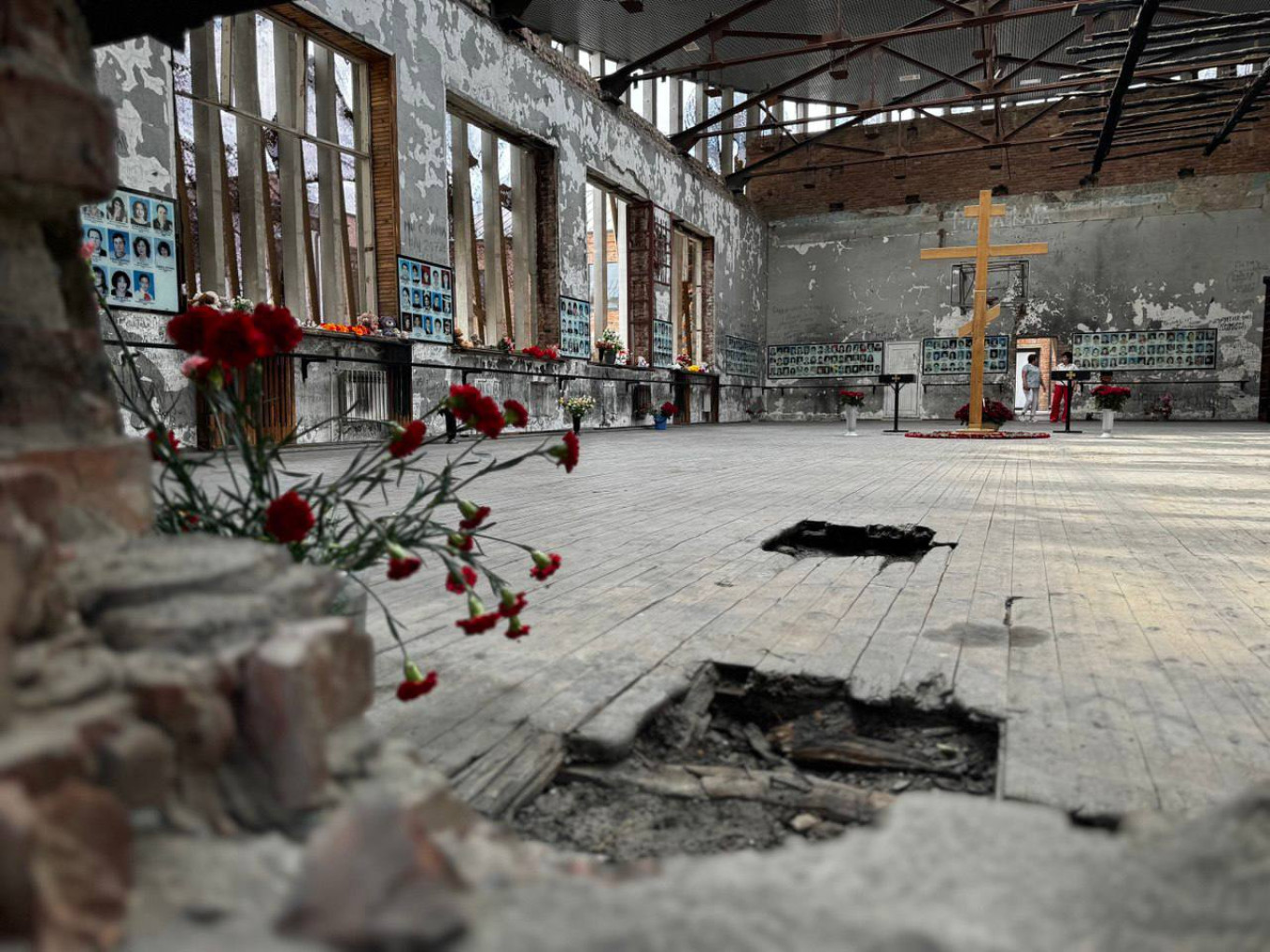
Residents of the town of Beslan in North Ossetia this week paid tribute to the victims of the 2004 terrorist attack on a local school, one of the deadliest attacks in Russian history.
On the morning of Sept. 1, 2004 — the first day of the new school year in Russia — armed terrorists took more than 1,100 civilians hostage at School No. 1, demanding the withdrawal of Russian troops from neighboring Chechnya and the recognition of Chechnya’s independence.
The hostages were forced inside the school’s explosives-rigged gymnasium and kept there without food, water or proper sanitation for three days. On Sept. 3, a series of explosions erupted inside the school, plunging the situation into chaos and triggering an assault by Russian special forces.
The siege ended with more than 330 civilians killed, 186 of whom were children, as well as more than 700 injured.
Culture & Entertainment
- Organizers of the Festival of Yakutian Cinema, which will take place in Paris for the second time from Sept. 19-21, will bring the event to Berlin’s Kino Krokodil from Sept. 24-26. The festival program includes a Q&A with Yakutian directors, who will talk about the Sakha culture and the phenomenon of “Sakhawood.” More information on the upcoming festivals in Paris and Berlin is available here.
- Azalia Khamitova, a game developer from the republic of Bashkortostan, has released the Bashkir folk game “Among the Winds.” The game invites players to help Bashkir girl Sufia on her journey to deliver an amulet to the wind deities. The game is available to play here.
A Message from The Moscow Times:
Dear readers,
We are facing unprecedented challenges. Russia's Prosecutor General's Office has designated The Moscow Times as an "undesirable" organization, criminalizing our work and putting our staff at risk of prosecution. This follows our earlier unjust labeling as a "foreign agent."
These actions are direct attempts to silence independent journalism in Russia. The authorities claim our work "discredits the decisions of the Russian leadership." We see things differently: we strive to provide accurate, unbiased reporting on Russia.
We, the journalists of The Moscow Times, refuse to be silenced. But to continue our work, we need your help.
Your support, no matter how small, makes a world of difference. If you can, please support us monthly starting from just $2. It's quick to set up, and every contribution makes a significant impact.
By supporting The Moscow Times, you're defending open, independent journalism in the face of repression. Thank you for standing with us.
Remind me later.



